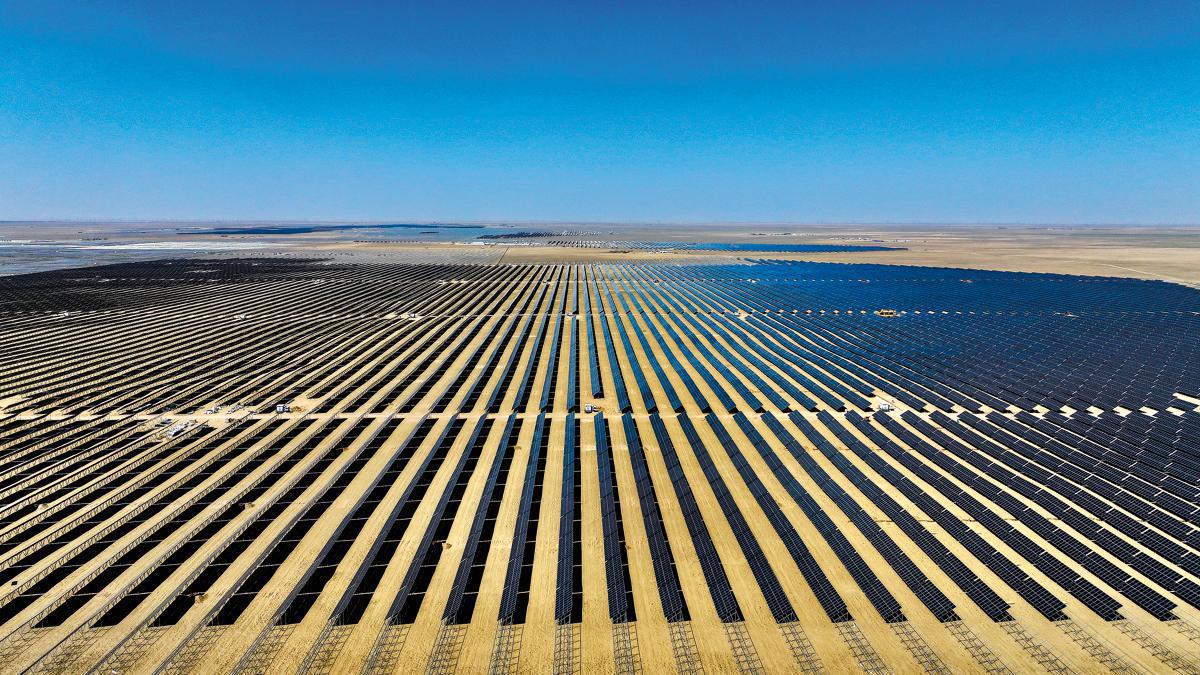New energy overtakes thermal power in China's coal-rich Inner Mongolia


HOHHOT -- The installed new energy capacity, which includes wind power and solar energy, in North China's coal-rich Inner Mongolia autonomous region has surpassed 120 million kilowatts, exceeding the region's installed thermal power capacity for the first time.
Inner Mongolia has achieved this milestone one year ahead of schedule, most recently having connected a 1-million-kilowatt photovoltaic project to the grid. Its total installed power capacity is now 240 million kilowatts, and its installed thermal power capacity is 117 million kilowatts.
Inner Mongolia possesses abundant new energy resources, with a wind energy resource potential of 1.46 billion kilowatts, accounting for approximately 57 percent of the national figure. Its solar energy resource potential amounts to 9.4 billion kilowatts, representing approximately 21 percent of the national potential.
Currently, new energy installations connected to the grid in the region generate 270 billion kilowatt-hours of green electricity annually, which is equivalent to reducing standard coal use by 84 million tons and reducing carbon dioxide emissions by over 220 million tons.
Inner Mongolia also boasts coal reserves totaling 536.5 billion tons, accounting for nearly one-third of the national total. In 2023, its annual coal production output came in above 1.2 billion tons, of which approximately 60 percent was sold outside the region, with about 250 million tons used to generate thermal power within the region.
According to a bulletin posted on the regional energy bureau's official website in January, Inner Mongolia at the time planned to shut down three coal mines in 2024 with a total production capacity of 2.1 million tons.
Inner Mongolia has also made great strides in technological innovation in the field of new energy. The region has integrated wind and solar power generation with desertification control, for example, by using solar panels to provide shade and reduce surface water evaporation to enable plant growth beneath. Projects such as this ingeniously combine new energy development with desert ecosystem restoration.
Inner Mongolia can be seen as a microcosm of the rapid growth of China's new energy sector, which has maintained a double-digit annual growth rate in recent years.
Since 2013, the country's installed wind power capacity has grown sixfold, and its installed solar power capacity has surged more than 180-fold. New installations in China account for over 40 percent of the global annual total, contributing significantly to the world's green development.
In the tone-setting annual economic work conference held earlier this month, China's policymakers pledged to accelerate the comprehensive green transformation of economic and social development next year.
To achieve the country's dual carbon goals, China will tighten control over the consumption of fossil fuels, work faster to develop a new energy system, and promote the integrated development of hydro, wind and solar power, said an official from the Office of the Central Committee for Financial and Economic Affairs.




































